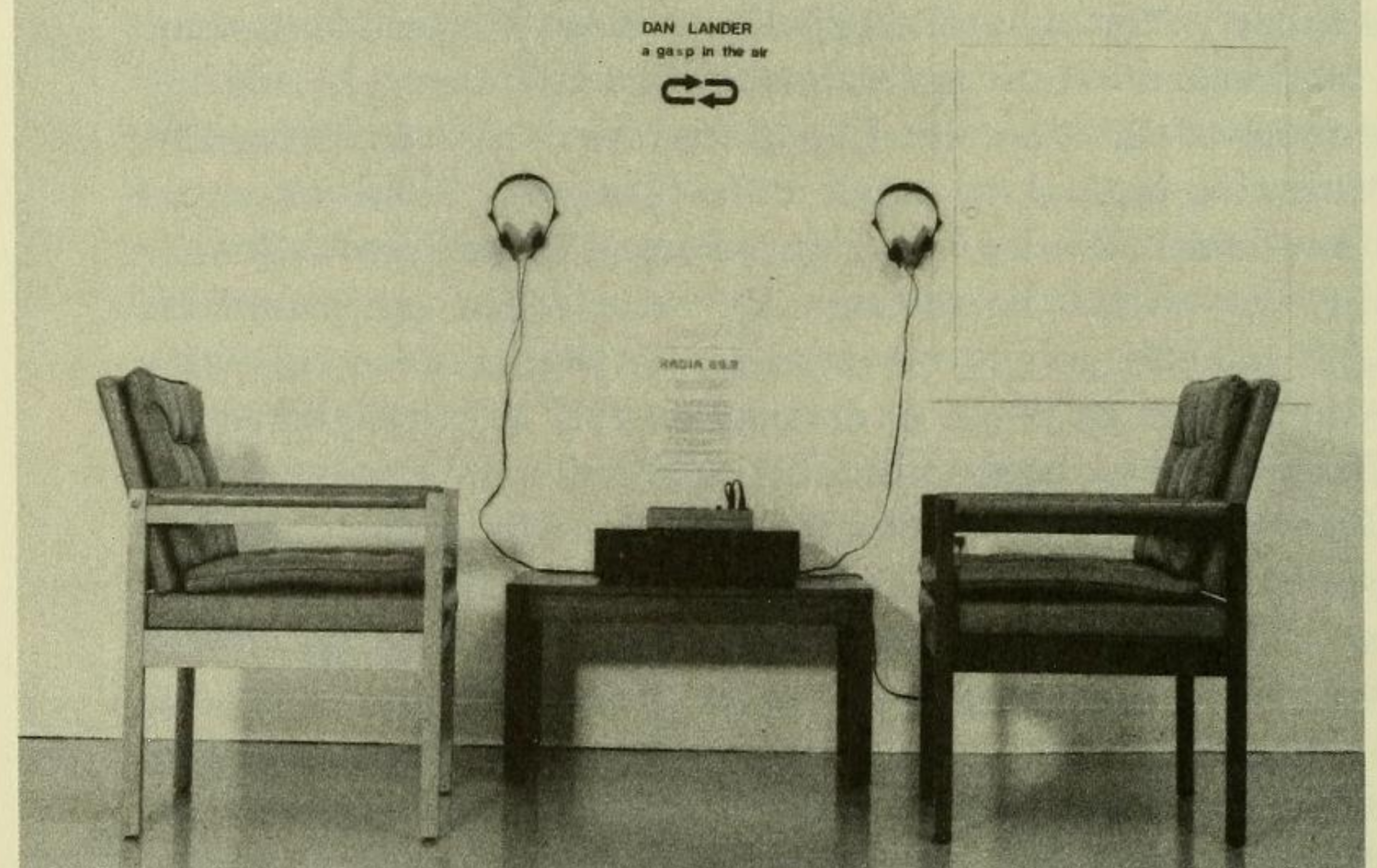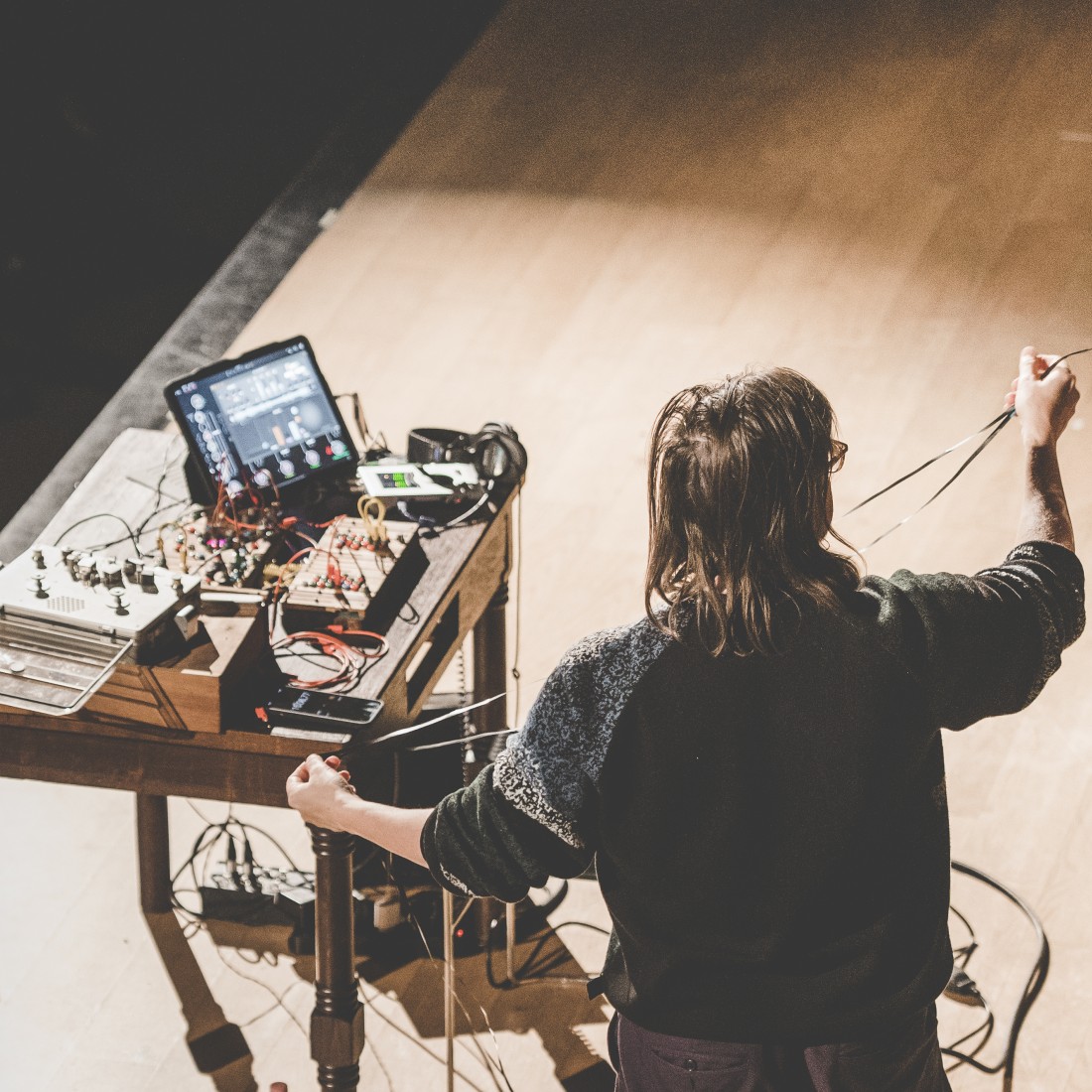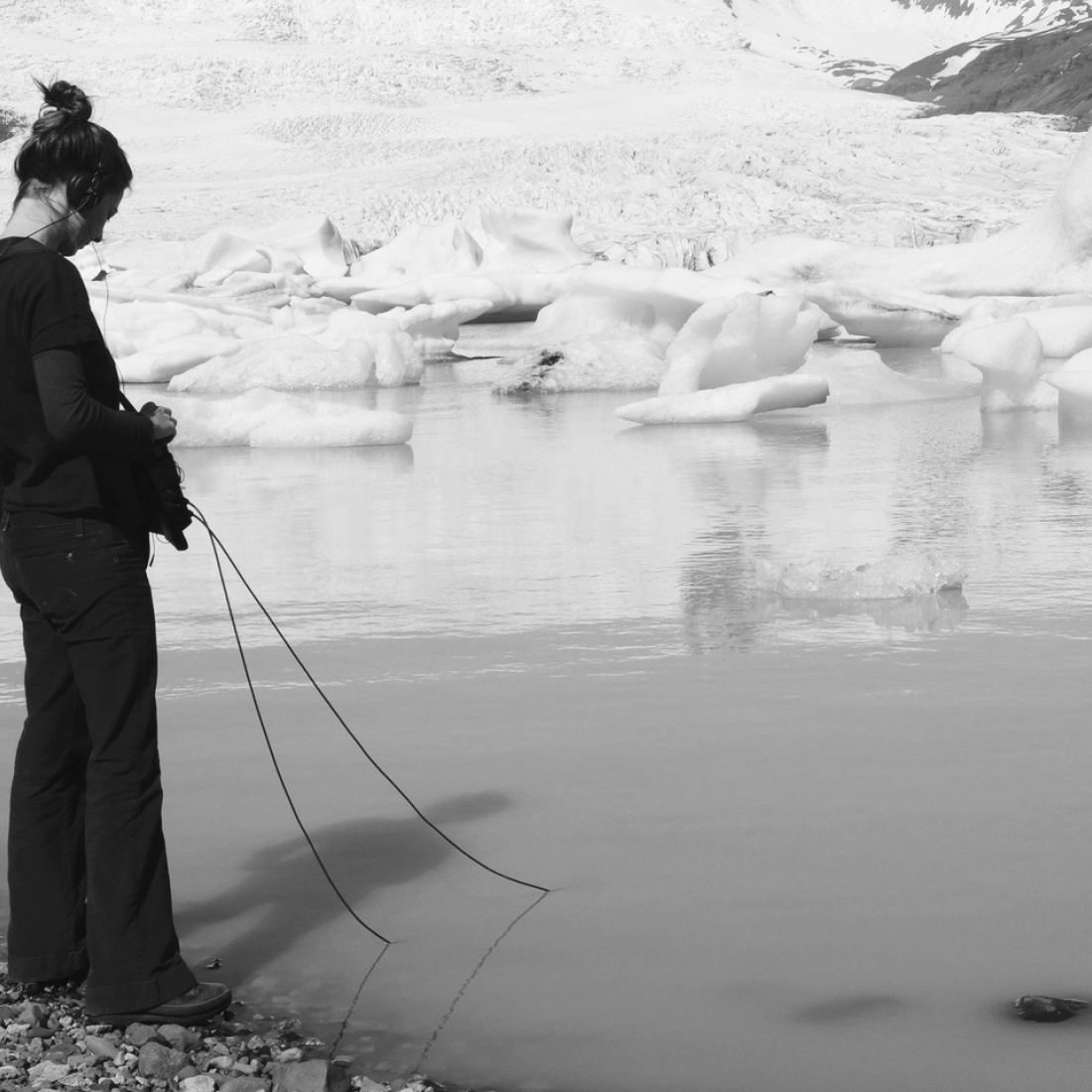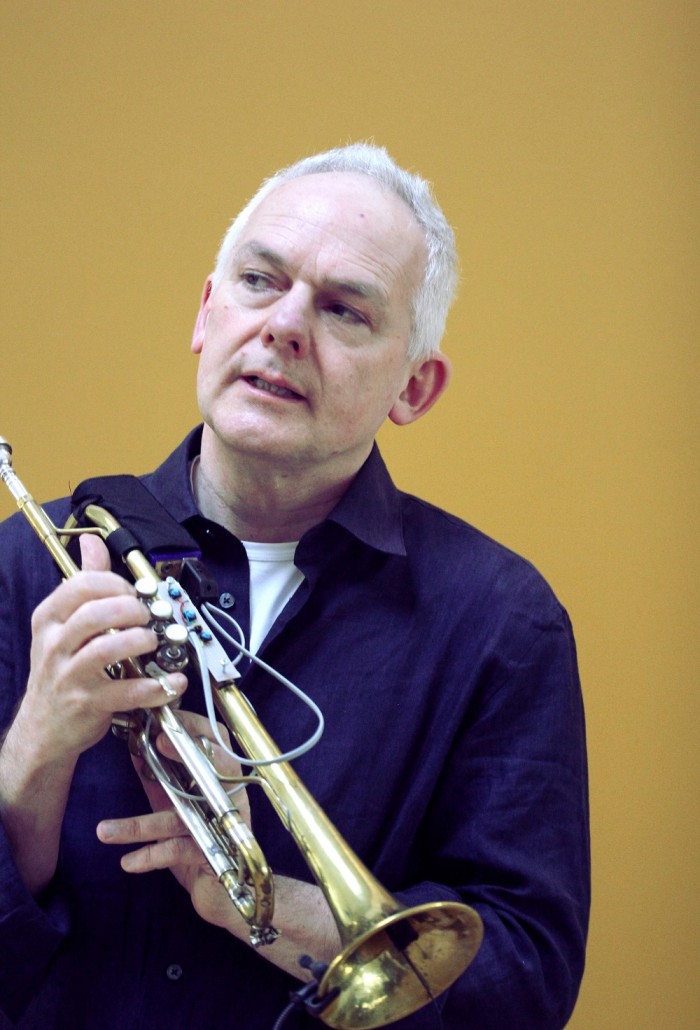
Datum en locatie
van 10 februari 2025 tot 28 mei 2025
Ghent & The Hague
Sound Arguments 2025
Event Callvan 10 februari 2025 tot 28 mei 2025Sound Arguments is an innovative laboratory-atelier for creative artists and researchers dealing with sound. Presented by the Orpheus Institute, Ghent (BE), and the Academy of Creative and Performing Arts, University of Leiden (NL), Sound Arguments transcends the boundaries of art school or conservatory, art space or university to propose a new kind of creating-researching-learning community. It reaches into the broad and complex space of current art-sound practices. At Sound Arguments, participants will share, invent, listen, learn and discuss.
InschrijvenOur creative, imaginative relationship with sound has entered a fantastically rich period, facilitated and necessitated by cultural, social and technological evolutions. Sound acts as a new parameter in a world evolved from the practices and theory of the visual arts or as a highly sophisticated art form in music
composition and improvisation. It acts as a dimension of the plastic, installation and interactive arts. It provides a perspective on place and time. It is a vital component of environmental art and a conveyor of information, e.g. through sonification. It emerges as algorithmic surface, as the trace of virtuoso
improvised performance or of informal social behaviour. And it provides an interface with technology.
Each of these perspectives has its own discourse, practices, techniques, cultural infrastructure and institutions. Sound Arguments is a locus for this rich tapestry, a space that aims to bring together people interested and working with sound with diverse, and complementary, backgrounds. Through sustained cross-fertilisation, they will participate in the evolution of new common discourses and individual critical practices.
At each of five monthly, two to three day encounters you will meet and discuss with invited artists and experts, addressing issues from the abstract to the technical, from the social to the practical. Guest artists and scholars will act as catalysts for sharing and reflection between participants; you will acquire new
techniques in workshops, lectures and guided listening sessions led by international experts, to stimulate and inform your practice. All participants will be able to share their own projects in a wide-ranging, critical and supportive environment. As a community, we will expand horizons, vision and practice – and
together hopefully evolve new discourses on contemporary sound-based practices.
Topics include:
- Hearing sound / seeing sound, composing / sculpting
- DIY electronics
- Radio, illegality, found score
- Performing electronic music live
- Network art
- Electronic lutherie, interface design
- Guided listening, early electronic music
- Sound synthesis, spatilisation
Documentation from previous editions can be seen in our Instagram page.
Topics & guests from previous editions can be found here and here.
Guests for the series will include:
John Chowning

Chowning was born in Salem, New Jersey in 1934, spending his school years in Wilmington, Delaware. Following military service and four years at Wittenberg University in Ohio, he studied composition in Paris with Nadia Boulanger. He received the doctorate in composition (DMA) from Stanford University in 1966, where he studied with Leland Smith.
In 1964, with the help of Max Mathews of Bell Telephone Laboratories and David Poole of Stanford University, he set up a computer music program using the computer system of Stanford's Artificial Intelligence Laboratory. Beginning the same year he began the research that led to the first generalized surround sound localization algorithm. In trying to comprehend the distance cue, Chowning discovered the frequency modulation synthesis (FM) algorithm in 1967. This breakthrough in the synthesis of timbres allowed a very simple yet elegant way of creating and controlling time-varying spectra. Inspired by the perceptual research of Jean-Claude Risset, he worked toward turning this discovery into a system of musical importance, using it extensively in his compositions. In 1973 Stanford University licensed the FM synthesis patent to Yamaha in Japan, leading to the most successful synthesis engine in the history of electronic musical instruments.
He taught computer-sound synthesis and composition at Stanford University's Department of Music. In 1974, with John Grey, James (Andy) Moorer, Loren Rush and Leland Smith, he founded the Center for Computer Research in Music and Acoustics (CCRMA), which remains one of the leading centers for computer music and related research. Although he retired in 1996, he remained in contact with CCRMA activities. In 2019, he initiated with an international team, a long-term project to recreate, by computer modeling, the acoustics of the Chauvet Cave in France as they were when the exquisite 36,000-32,000-year-old wall paintings were created.
Melissa Van Drie
Hainbach

Photo by Riccardo Diotallevi
Based out of Berlin, Germany, electro-acoustic composer Hainbach (*1978 Freiburg im Breisgau) creates experimental music that is both visceral and whimsical. Using esoteric synthesizers, test equipment and magnetic tape he creates “one hell of a trip” in his live sets and recorded music.
He shares techniques on experimental music on his YouTube channel, which has attracted an ever growing audience of more than 200000 subscribers and over 20 Million views, with several videos going viral. His body of work includes film soundtracks, pop productions, chamber music, theater music, sound art installations and music software.
Hainbach’s music has been featured in Pitchfork, The Wire, Bandcamp Daily, Bleep and Boomkat.
Darsha Hewitt
Darsha Hewitt (CA/DE) is an interdisciplinary artist that investigates the material politics of music and sound. She makes electromechanical sound installations, drawings, audio-visual works, how-to videos, sculptural installations and performative workshops that explore technological entanglements and their
implications on humans and ecology. With a media archeological perspective she explores sound beyond its sonic parameters through deconstruction of discarded technology. She focuses on the ethics of (planned) obsolescence and the practices of technology that consumer society throws away as a way to
trace out systems of power, economy and control inherent throughout socio-techno infrastructures.
Alongside reverse engineering, restoration and aesthetic experiments with decomposing music technology, she connects with a diverse range of technical communities, including retired engineers and technicians as a means to learn disappearing hands-on techniques that she integrates into her studio research and shares within the art/technology milieu. Her signature DIY electronics and experimental approach to sound pedagogy have been profiled in forums such as Chaos Computer Congress, Make: Magazine and recently in Garnet Hertz’s book ‘Art + DIY Electronics’ (MIT Press, 2023).
Hardi Kurda

Hardi Kurda is a sound artist, improviser, and founder of SPACE21, a sound art and experimental music platform, and the Archive Khanah, an interactive sound archive project in Slemani. He explores radio noises that may have been considered illegal, abandoned, unheard, invisible, broken, distorted, untold, forgotten, or simply noises from nowhere, without a place or destination. Hardi developed his works for radio during the Radio Art Residency in Halle. He developed the concept of the Found Score, a medium using everyday materials to reimagine listening experiences through engaging other senses, based on his own listening experience in a crisis when he immigrated illegally to Europe. Hardi’s works include Your Resonance (2023), Lost in Baghdad 0109 (2023), String Pulses (2023), Illegal Frequency Porto 1012 (2022), Everything is Illegal (2021), Listening’s Urgency (2021), Interactive Radio Antenna (2021), and the solo album Radiola Springs (2022).
Juan Parra Cancino

Studied Composition at the Catholic University of Chile and Sonology at the Royal Conservatoire The Hague (NL), where he obtained his Master's degree with a focus on composition and performance of electronic music. In 2014, Juan obtained his PhD degree from Leiden University with his thesis “Multiple Paths: Towards a Performance Practice in Computer Music”. As a guitarist, Parra has participated in several courses of Guitar Craft, a school founded by Robert Fripp, becoming part of various related guitar ensembles such as the Berlin Guitar Ensemble, the Buenos Aires Guitar Ensemble, and until 2003, The League of Crafty Guitarists.
His work in the field of live electronic music has made him the recipient of numerous grants such as NFPK, Prins Bernhard Cultuurfonds, and the International Music Council. Founder of The Electronic Hammer, a Computer and Percussion trio, and Wiregriot (voice & electronics), he collaborates regularly with Ensemble KLANG (NL) and Hermes (BE), among many others. Since 2009 Parra has been a fellow researcher at the Orpheus Institute (Ghent, BE), focused on performance practice in Computer Music.
Juan has been appointed as Regional Director for Europe of the International Computer Music Association for the period 2022-2026.
Matthias Puech

Matthias Puech is a composer, instrument designer, researcher and teacher born in Paris in 1983. He is a research and development scientist at INA GRM, where he leads the development of GRM Tools, and an associate professor of Computer Science at CNAM Paris. Trained in programming languages and formal logic, his scientific practice now focuses on audio signal processing, user interfaces and real time/embedded programming.
His music was released by labels Hands in the Dark, Hallow Ground or Nahal, and was performed notably at Cafe OTO (London), GRM Akousma (Paris), Sonic Acts (Amsterdam), Louvre (Lens), Gnration (Braga) or Kaserne (Basel). His synthesizer instruments (4ms Ensemble Oscillator & Tapographic Delay, Mutable Instruments Parasites) are commercially available and used worldwide.
Els Viaene

Els Viaene (°1979, Belgium) started her work as a sound artist / field recordist in 2001. With a set-up of two small microphones she listens, zooms into and enlarges the aural landscapes surrounding us. The natural rhythms and textures of the sounds hidden in those landscapes form the basis of her work. Working on these sound materials for performances, sound compositions or installations she makes the listeners travel in imaginary and organic environments. Through the specific use and set-up of sound within a space her installations create new spaces within existing ones, either emphasizing or making dissapear the physical borders of that space.
In doing so she often plays with the notions of seeing and hearing, the perception of what we see and hear and how both interfere.
Sara Weaver

Sarah Weaver, Ph.D. is a New York-based contemporary composer, conductor, technologist, educator, researcher, and administrator working internationally as a specialist in ensemble composition and network arts. Her network composition system innovates contemplative concepts on synchrony, synthesis, transmission, and interconnection for artistic and social purpose. Weaver is Director of the Sarah Weaver Ensemble, Director of NowNet Arts, Editor of the Journal of Network Music and Arts (JONMA), and teaches network arts at New York University.
Sound Arguments will meet monthly from February – May 2025. Meetings will be held alternately in Ghent and The Hague. Sessions will run on Mondays 14:00-20:30 and Tuesdays 10:00-16:00 (March and April); Mondays 14:00-20:30, Tuesdays 10:00-19:00 and Wednesdays 10:00-16:00 (February and May).
- February 10-11-12 (Orpheus Institute, Ghent)
- March 03-04 (Orpheus Institute, Ghent)
- March 31-April 01 (The Hague)
- April 28-29 (The Hague)
- May 26-27-28 (Orpheus Institute, Ghent)
The nature of this series is such that numbers must be limited. Prospective participants are invited to apply
by responding to this call at:
https://airtable.com/
The form requests a brief description of the role of sound in your practice, which will allow us to balance the series appropriately. Application is open until 04 January 2025 (no extension). Applicants will be notified by 15 January.Sound
Arguments is made available at no cost to participants, regardless of institutional affiliation. At Sound Arguments we aim to create a safe and inclusive environment for all those involved; we particularly encourage applications from historically under-represented groups in the field. As organisors, we commit to taking that into account during evaluation of the applications received.
General inquiries can be sent to soundarguments@orpheusinstituut.be
We look forward to meeting you!
Magno Caliman (Orpheus Institute, Ghent)
Marcel Cobussen (Academy of Creative and Performance Arts, Leiden University)
Jonathan Impett (Orpheus Institute, Ghent)



